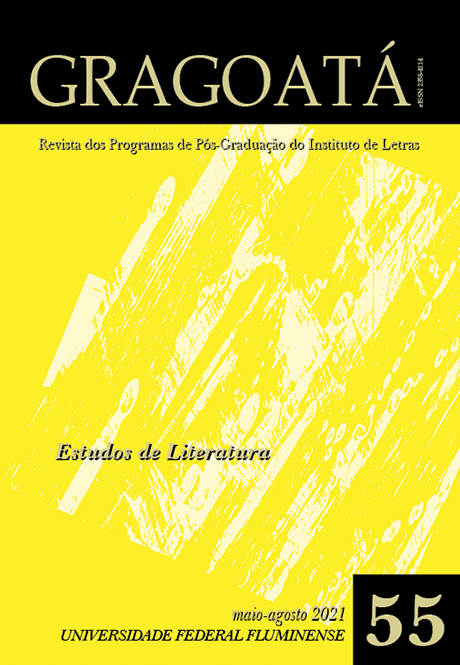Distopia, angústia de aniquilamento e a radical poética das relações
DOI :
https://doi.org/10.22409/gragoata.v26i55.47368Résumé
O presente artigo pensa a distopia sob a égide da angústia de aniquilamento (Mbembe, 2016), e busca refletir como tal noção desafia o surgimento de poéticas da relação (Glissant, 1990) como modo de criação dos espaços literário (Blanchot, 1955), utópico e heterotópico (Foucault, 2009) em sociedades cujo passado colonial, e as incursões de cunho autoritário, perpetraram-se ao longo de séculos, como é o caso da sociedade brasileira. A hipótese primordial é a de que, nesses contextos, os espaços de distopia se estabelecem como o início, e não como o fim de tudo, vindo a ser um dos operadores fundacionais de um lugar (utópico ou heterotópico?) inventado pelo outro, o colonizador. A angústia de aniquilamento é a ferramenta primordial para a construção desse lugar e dessa cena (que a literatura irá propagar), e dos laços sociais e os efeitos de divisão espacial (social) e discursiva subsequentes. O artigo buscará, nesse sentido, colocar em questão a noção contemporânea de distopia – muito presente nas narrativas sobre o fim do mundo e na aparição dos messianismos negativos da contemporaneidade no contexto especifico da formação das sociedades coloniais, mas não sem deixar de observar alguns estratos estético-políticos onde uma poética da relação burla esse desenho nas sociedades pós-coloniais.
Téléchargements
Téléchargements
Publiée
Numéro
Rubrique
Licence
AUTORIZAÇÃO
Autores que publicam em Gragoatá concordam com os seguintes termos:
Os autores mantêm os direitos e cedem à revista o direito à primeira publicação, simultaneamente submetido a uma licença Creative Commons Atribuição 4.0 Internacional (CC BY 4.0), que permite o compartilhamento por terceiros com a devida menção ao autor e à primeira publicação pela Gragoatá.
Os autores podem entrar em acordos contratuais adicionais e separados para a distribuição não exclusiva da versão publicada da obra (por exemplo, postá-la em um repositório institucional ou publicá-la em um livro), com o reconhecimento de sua publicação inicial na Gragoatá.
A Gragoatá utiliza uma Licença Creative Commons - Atribuição CC BY 4.0 Internacional.











